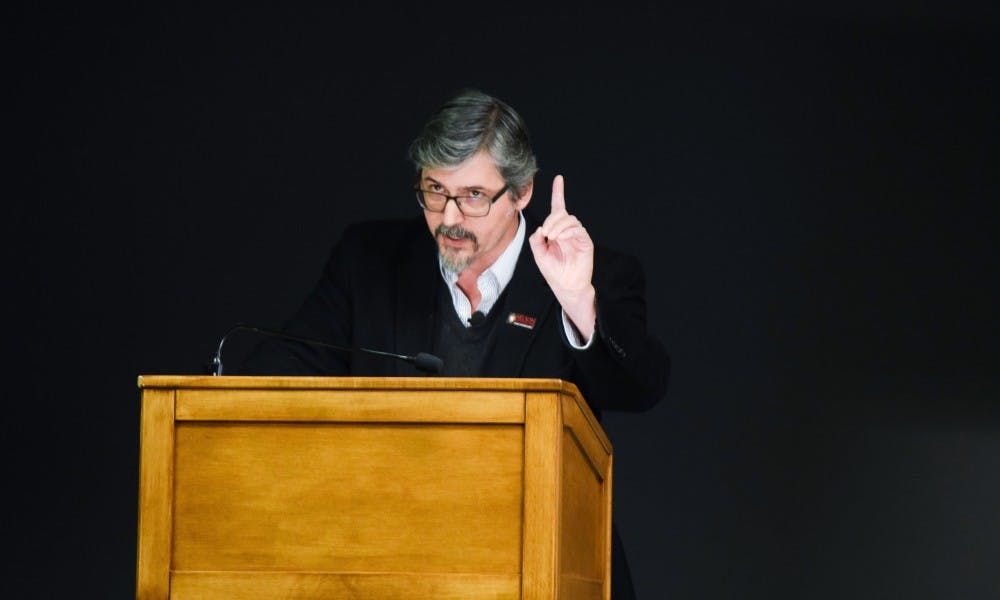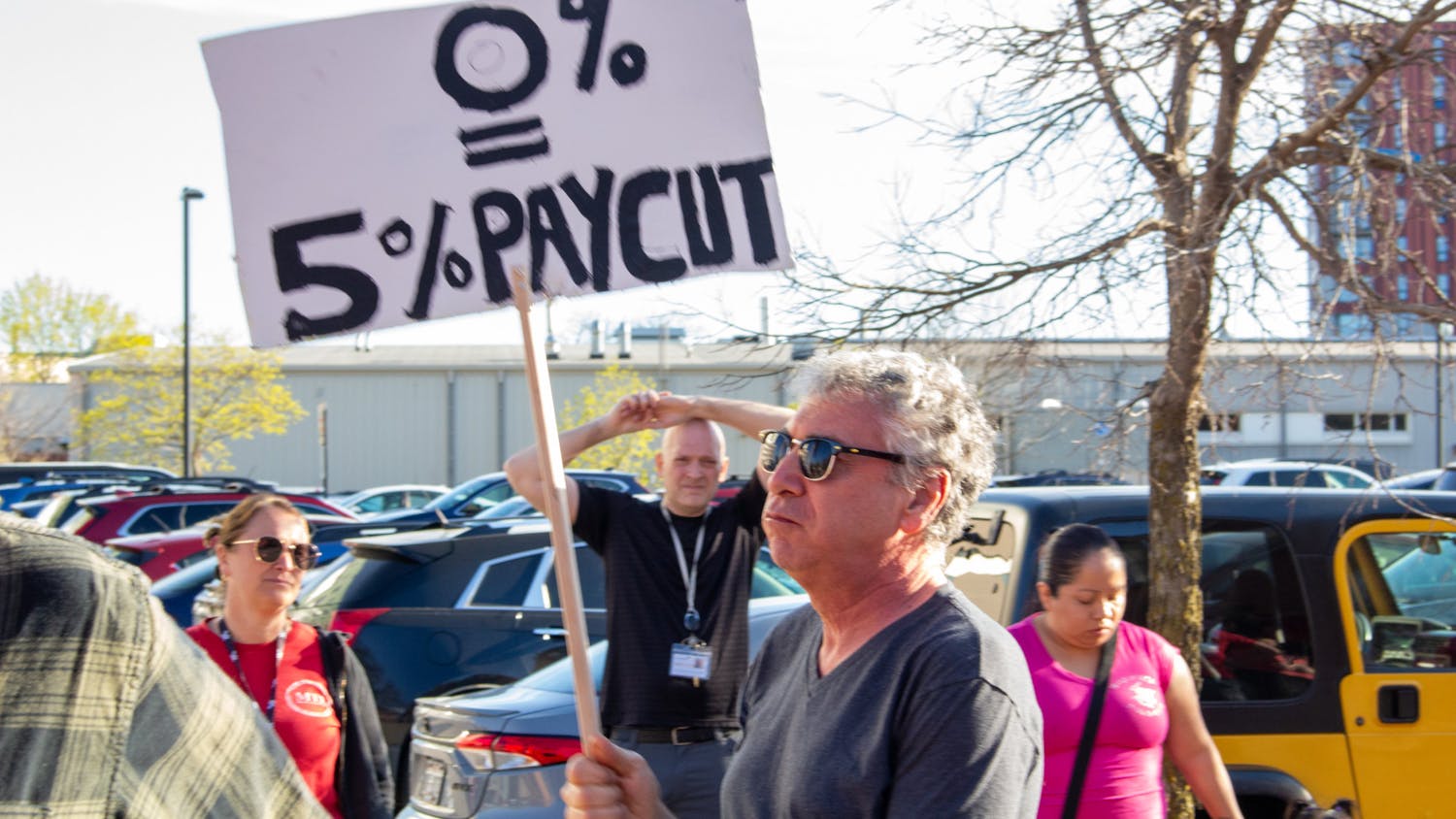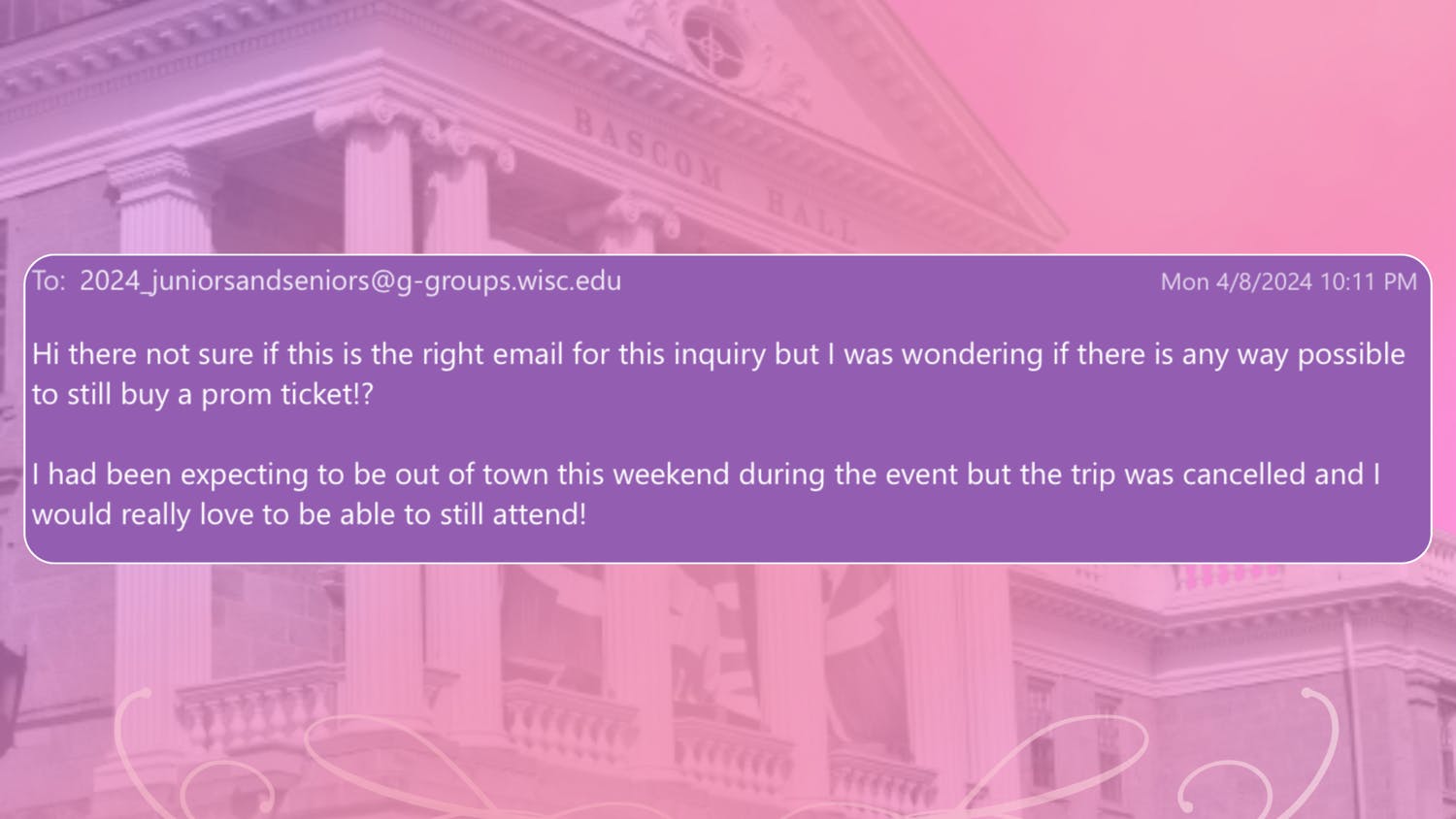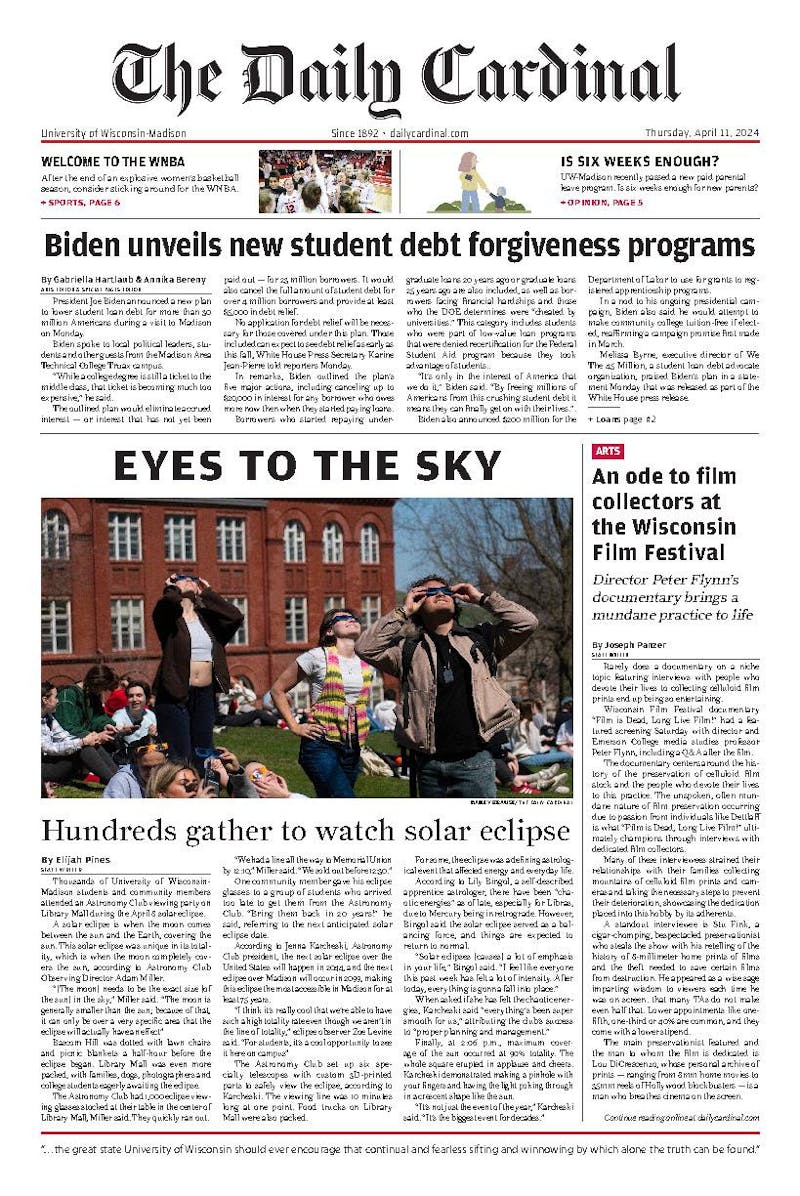Patrick Brenzel has long been an advocate of public service. From attending UW-Madison as a mechanical engineering student in the 1980s to working in the university’s sociology department, Brenzel has appreciated and supported the Wisconsin Idea, the theory that the university works to improve the lives of the citizens of Wisconsin.
When Gov. Scott Walker proposed changing the Wisconsin Idea in 2015, Brenzel decided to fill the void left by UW-Madison’s failure to “step up and properly address” Walker’s effort to change the idea that public universities should stay in the public interest.
“People were looking to the chancellor to speak on our behalf, and my own feeling was that that wasn’t quite enough,” Brenzel said. “I wanted there to be a bigger and broader conversation about [the Wisconsin Idea]. UW-Madison has a history that is steeped with honor, and I think that a look at the Wisconsin Idea is a way to teach you about your institution.”
After making a suggestion to the sociology department chair and gaining the support of faculty members across UW-Madison, Brenzel created a new course aimed at exploring the university’s relationship with the state of Wisconsin.
“FORWARD? The Wisconsin Idea, Past and Present,” a course introduced by the sociology department last year, reflects Brenzel’s appreciation of public service and UW-Madison, exploring the many ways university research has been applied to solve problems and improve the lives of the citizens of Wisconsin.
According to Brenzel, UW-Madison “[has] improved the lives of Wisconsinites for over 100 years.” Although other universities say they engage in public service, Brenzel said a lot of the ideals these universities embrace began in Wisconsin. He used the invention of public broadcasting as an example of the Wisconsin Idea’s national influence.
“We go on these campus tours and walk by Radio Hall and say, ‘This is the place of the first public broadcast,’” Brenzel said. “People often think about what a technological feat this was, but it goes way beyond the technology that was involved. It had to do with the vision of the people who were involved. The vision of these people was to share information in a democratic way that would elevate the quality of lives of all Wisconsinites.”
In the spirit of connecting the university to the state and its citizens, lectures are held Tuesday evenings and are open to both students and the public. They will be led by UW-Madison faculty members and invited speakers from many different departments and “areas of expertise as they relate to the Wisconsin Idea,” according to Brenzel.
While the course—featuring topics ranging from the general public’s influence in shaping policy at the university to balancing animal welfare with economic realities—is listed in the sociology department, Brenzel thinks it should be cross-listed. According to Brenzel, the Wisconsin Idea is multidisciplinary and relevant to the work being done in many different departments across UW-Madison.
Much like the principles of the Wisconsin Idea, Brenzel said he hopes students take what they learn in this class and use it to improve their communities.
“It is my hope that undergraduates act on all of the things that they learn at UW-Madison,” he said. “It is my hope that, when you all graduate, you take with you some commitment to public service. That you go out and, just beyond enriching yourselves, that you go out and you make your communities a better place to live.”
Sociology 496 can be taken as the public lectures alone, or lectures with a 3-credit seminar held Thursday afternoons. Students who wish to attend only the public lectures have the opportunity to receive one credit. To view past lectures or to check the schedule of upcoming lectures, visit www.wiscidea.com.






